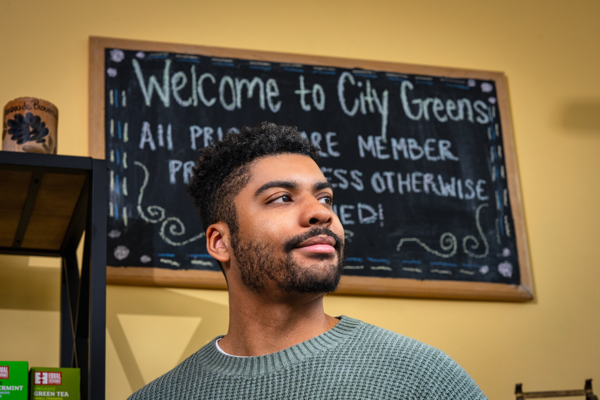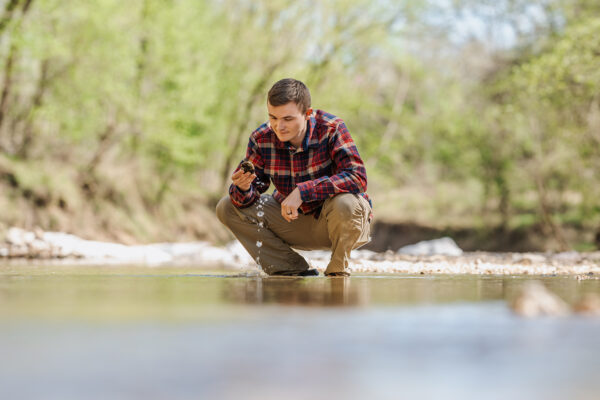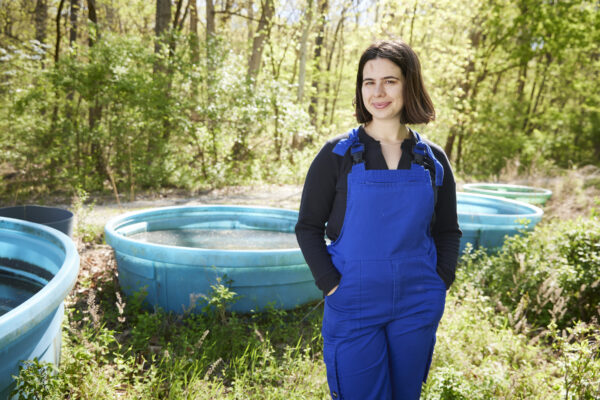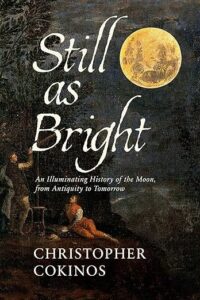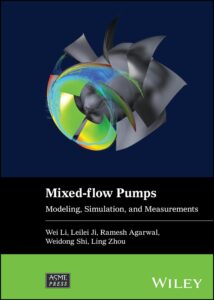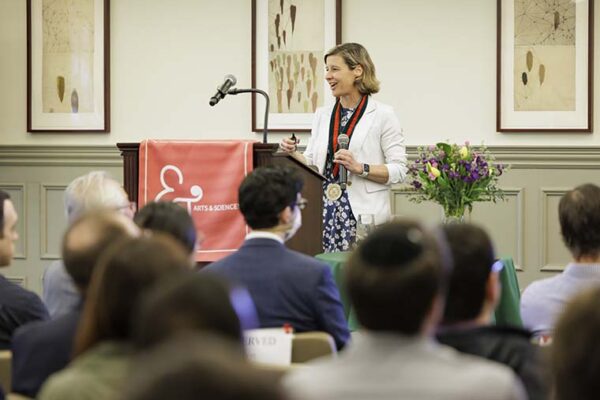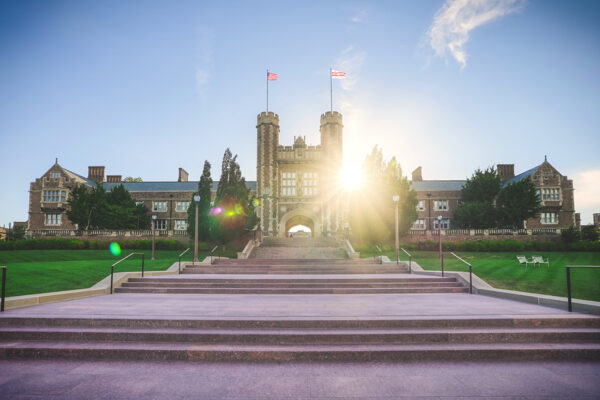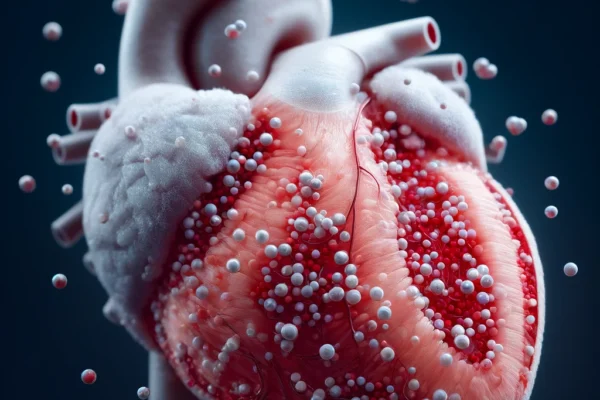Class Acts: Avital Isakov
A 2023 Astronaut Scholar, Avital Isakov studies green energy solutions in Robert Wexler’s laboratory in the Department of Chemistry in Arts & Sciences and plans to pursue a PhD in computational and theoretical chemistry.
Class Acts: Franklin Taylor
As an Olin Business School MBA student, Franklin Taylor collaborated with mentors and fellow students to build a startup company that aims to help grocery stores alleviate food waste and increase profitability.
Class Acts: Austin Schorfheide
Some of Austin Schorfheide’s happiest memories are working the family farm in Hoyleton, Ill. — bailing hay, milking the cows, planting corn and soybeans. So while Schorfheide knew he did not want to be a farmer himself, he does want to make life better for farming communities.
Class Acts: Sophia Hatzikos
In a wide-ranging practice that encompasses sculpture, video, performance and installation, Sophia Hatzikos explores the complex relationships between natural and constructed systems and between scientific and artistic research practices.
Still as Bright
An Illuminating History of the Moon, From Antiquity to Tomorrow
In the luminously told Still As Bright, the story of the Moon traverses time and space, rendering a range of human experiences—from the beliefs of ancient cultures to the science of Galileo’s telescopic discoveries, from the obsessions of colorful 19th century “selenographers” to the astronauts of Apollo and, now, Artemis. Still As Bright also traces […]
Mixed-flow Pumps
Modeling, Simulation, and Measurements
Learn to improve and optimize the design and operation of mixed-flow pumps Mixed-flow pumps have a huge range of applications in agriculture, hydroelectric power and other industries that incorporate fluid transport. They are centrifugal pumps incorporating the characteristics of both axial and radial pumps to increase the flow rate and discharge pressure. Though essential in […]
Heemstra installed as Charles Allen Thomas Professor in Chemistry
Jennifer Heemstra was installed as the Charles Allen Thomas Professor in Chemistry in Arts & Sciences at Washington University in St. Louis during a ceremony April 10 at the Whittemore House. Her lab is focused on harnessing the capabilities of proteins and nucleic acids to address unmet needs in biomedicine and the environment.
Astronomers share climate-friendly meeting solutions
Carbon emissions associated with air travel to professional conferences make up a sizable fraction of the emissions produced by researchers in academia. Andrea Gokus, a McDonnell Center postdoctoral fellow in Arts & Sciences, is advocating for astronomers and others to reduce those emissions.
Faculty named to American Academy of Arts & Sciences
Four Washington University in St. Louis faculty are among 250 newly elected members of the American Academy of Arts & Sciences, one of the nation’s most prestigious honorary societies. They are John Atkinson, MD, Pauline Kim, Adia Harvey Wingfield and Jeffrey Zacks.
Smart nanoparticles may be able to deliver drugs to heart after heart attack
Jianjun Guan, a materials scientist in the McKelvey School of Engineering at Washington University in St. Louis, received a four-year more than $2 million grant from the National Institutes of Health (NIH) to design a system of nanoparticles that deliver drugs after a heart attack much more effectively than current methods allow.
Older Stories

